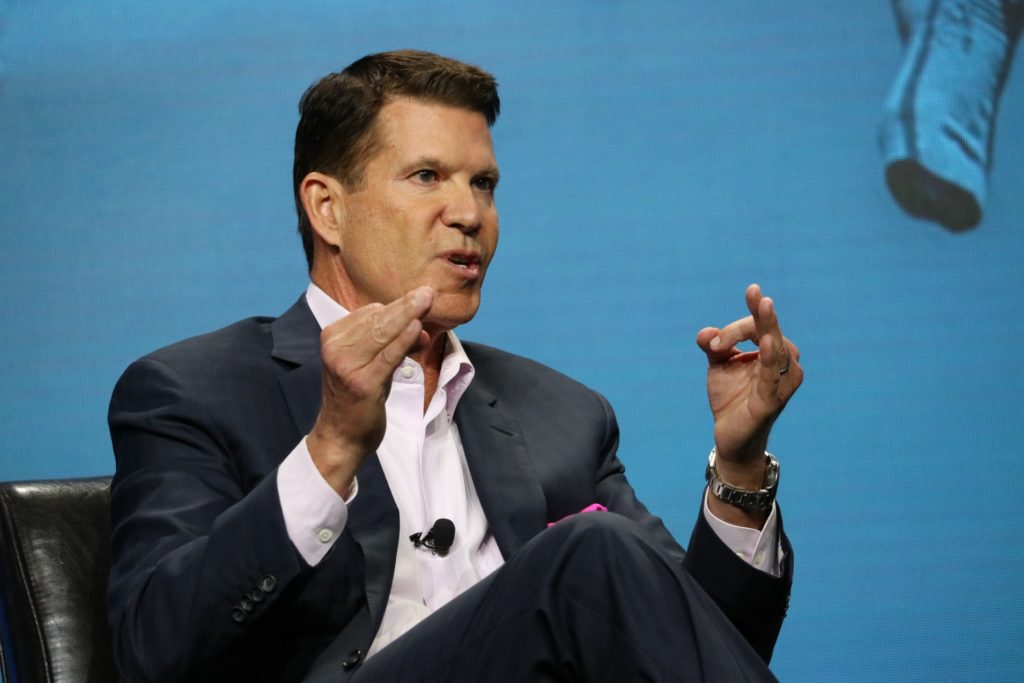 For Keith Krach, former chairman and CEO of DocuSign and Ariba, disruption is a critical ingredient when it comes to business success. A look at his track record shows why—Krach disrupted digital transaction management at DocuSign, shook up the B2B e-commerce world at Ariba and changed the face of higher education during his stint at Purdue University Global.
For Keith Krach, former chairman and CEO of DocuSign and Ariba, disruption is a critical ingredient when it comes to business success. A look at his track record shows why—Krach disrupted digital transaction management at DocuSign, shook up the B2B e-commerce world at Ariba and changed the face of higher education during his stint at Purdue University Global.
But while disruption plays a critical role in success, Krach believes there’s a significant shortage of transformational leaders in the world—those who can disrupt entire categories. And for transformational leaders to succeed, it all starts with building a winning team.
“I look at it as a three step process,” Krach told Chief Executive. “First, you assemble the experts around you. Second, you make sure that they are diverse, whether it’s discipline, how they look at things, industry, demographics, those kinds of things. The third thing is to suppress everybody’s ego on the team and focus them on the mission or the enemy.”
Chief Executive caught up with Krach to talk about what attributed transformational leaders share, the important role of mentorship in today’s business world and the most important leadership lessons he’s learned over his career. Below are excerpts from the conversation.
The key characteristics that transformational leaders share
Let me break it into three buckets: The first one is how they relate to the world, the second is how they relate to themselves and the third thing is how they relate to others.
When I look at the characteristics and how they relate to the world, they are visionary innovators who strategically create new realities. Visionary in terms of being able to visualize what is that future they want to create, so it’s always starting with the end in mind. And then they apply innovative, novel approaches to get there and to solve problems. Then there’s the strategic side, because they can grasp complex issues and uncover hidden opportunities. Taking something complex and making it simple is the key because it has to be simple in order to communicate it and to execute on it. The last one in terms of how they relate to the world is they’re prolific. What I mean by that is they’re builders, they build new things and it’s built to last. They leave lasting legacies.
How they relate to themselves is they hold themselves to a strong set of values, the highest moral and ethical standards. Their integrity is beyond reproach and they put the company first. And, secondly, they’re challenging—they challenged the status quo, they defy convention. They also challenge the people they work with, and the system. And they are courageous—they’re masters of their fears and the pursuit of their mission.
I think that the prolific transformational leaders are always lost in the woods, jumping in water over your head or reinventing yourself, actually disrupting yourself. And after a while that gets addicting. The fourth thing is resiliency. They have that adversity quotient, that grit, they’re willing to overcome obstacles to achieve their goals. And the thing about that adversity quotient is that this stuff’s not written in a book, so you learn a lot as you go on, but they really know the Serenity Prayer—there are certain things you can control, certain things you can’t, and they focus on the things that they can. Somebody with a high adversity quotient is a master at that. They also have got the patience and perseverance go with endurance, physical stamina and emotional stamina.
The last thing is how they relate to others. And I think they’re inspirational leaders who empower and unify teams to achieve great things, and they stir the passions of others to achieve great things. A great transformational leader will always make sure that they have different temperaments, talents and convictions and diversity of thought.
Key leadership lessons he’s learned over the years
Don’t get too high on the highs or get too low on the lows, because just when you’re on top of the world, you’d better look over your shoulder because there’s a freight train coming. And those times you feel like crawling up under your desk in the fetal position, know you’re going to get out of it and a great way to get out of it is to know which are your safe places. It could be a wife, kids, your friends, it could be just talking with your team, your mentor or your mentee.
No matter where you go, ego is your enemy and humility is your friend. Empathy is key because you have to read the situation and humility helps you read that situation.
The other key thing, and I think it’s a center piece for so many things, is curiosity. I think it is the key to being on that endless quest of learning. The other thing that I’ve learned through the years is that you’re never too old to learn, you’re never too old to sharpen the saw, and you can actually accelerate your pace of learning because you learn different ways, different approaches to doing that. But curiosity I think is absolutely key.
On the value of mentorship in the business world
The best way to learn how to become a transformational leader is through mentorship, because this stuff is not written in a book. And you learn most from your failures, right? As my mom would always say, the best way to learn is through other people’s experience. You learn the most from when you fail, but the idea is to learn from the failures of guys who have been there before, and you’ll have plenty of time to have your own failures and learn from them. So, that mentoring is absolutely key. And I think the other key is that multiple mentors accelerate the development process.
If you’re looking for a mentor, there are three things that you’re looking for: One is, if you’re really set on being a transformational leader, you want to find somebody who’s done it before, done it at scale or has taken something from nothing and at great velocity. So in other words, the mentor has to have to have the capabilities.
The second thing is they have to want to be a mentor. You can’t walk up to some guy who’s maybe a cold person or something like that—they’ve got to want it, and a great way to test for it is you ask them about who mentored them. The third thing is that the chemistry has to be right. I’ve always said I learned more from my mentees that I did from my mentor.
Related: Former Cintas President & COO Shares Insights On Supplier Diversity & Leadership

Chief Executive Group exists to improve the performance of U.S. CEOs, senior executives and public-company directors, helping you grow your companies, build your communities and strengthen society. Learn more at chiefexecutivegroup.com.
0

1:00 - 5:00 pm
Over 70% of Executives Surveyed Agree: Many Strategic Planning Efforts Lack Systematic Approach Tips for Enhancing Your Strategic Planning Process
Executives expressed frustration with their current strategic planning process. Issues include:
Steve Rutan and Denise Harrison have put together an afternoon workshop that will provide the tools you need to address these concerns. They have worked with hundreds of executives to develop a systematic approach that will enable your team to make better decisions during strategic planning. Steve and Denise will walk you through exercises for prioritizing your lists and steps that will reset and reinvigorate your process. This will be a hands-on workshop that will enable you to think about your business as you use the tools that are being presented. If you are ready for a Strategic Planning tune-up, select this workshop in your registration form. The additional fee of $695 will be added to your total.

2:00 - 5:00 pm
Female leaders face the same issues all leaders do, but they often face additional challenges too. In this peer session, we will facilitate a discussion of best practices and how to overcome common barriers to help women leaders be more effective within and outside their organizations.
Limited space available.

10:30 - 5:00 pm
General’s Retreat at Hermitage Golf Course
Sponsored by UBS
General’s Retreat, built in 1986 with architect Gary Roger Baird, has been voted the “Best Golf Course in Nashville” and is a “must play” when visiting the Nashville, Tennessee area. With the beautiful setting along the Cumberland River, golfers of all capabilities will thoroughly enjoy the golf, scenery and hospitality.
The golf outing fee includes transportation to and from the hotel, greens/cart fees, use of practice facilities, and boxed lunch. The bus will leave the hotel at 10:30 am for a noon shotgun start and return to the hotel after the cocktail reception following the completion of the round.